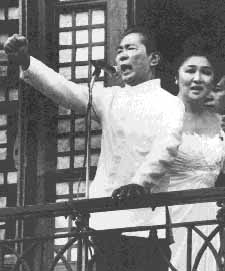Thai media situation deteriorating: Broadcasting regulated, Internet webmasters warned. Community radio stations shut down. Self-censorship on the rise -- SEAPA
Source: Southeast Asian Press Alliance (SEAPA)
The Internet is the latest medium under threat in military-ruled Thailand, as media conditions continue to deteriorate in the first days of the military takeover. The overall environment for the press is unstable, and is being undermined by the day.
Following restrictions placed on the broadcast media, the Information and Communication Technology Ministry has now warned webmasters that they would be held responsible for all postings on their sites. Webmasters have also been told to delete messages that could refer to the monarchy, and to ensure that postings would not disturb the peace.
Meanwhile, a website set up to encourage Thais to air their views about the pros and cons to the coup was shut down within 24 hours of its establishment. The Ministry pulled the plug on website http:// www.19sep.com saying its contents ran contrary to the guidelines laid down by the Council for Democratic Reform under the Constitutional Monarchy (CDRM) (previously referred to as the Administrative Reform Council).
The CDRM was set up by the military following a bloodless coup against then caretaker Prime Minister Thaksin Shinawarta on 19 September.
Meanwhile, the Council maintains its strictest controls over the broadcasting sector. National broadcasting networks had been advised of guidelines for reporting on 21 September, and since then the authorities have shut down more than 300 community radio stations in the upper provinces of Chiang Mai, Chiang Rai and Mae Hong Son, where Thaksin has strong support.
While there are no guidelines specifically applying to the print media, and while journalists seem to still be enjoying freedom to move around Bangkok and to gather news and information, general media guidelines “urge” the press to refrain from “negative” reporting. SEAPA is concerned that the “request” is strong enough to trigger self-censorship among Thai media players. Websites known to be supportive of Thaksin, for example, are still accessible but their contents have shifted to merely featuring the latest news, indicating that its editors and webmasters have perhaps begun censoring themselves.
The Thai Broadcast Journalists Association and Thai Journalists Association issued a joint statement on 21 September, urging the CDRM to respect freedom of expression. They also called upon the Council to ensure that the interim Constitution would maintain the previous Constitution’s articles 39, 40 and 41 which guarantee freedom of expression including freedom of the press.
Meanwhile, the Council has maintained the status of the Political Parties Act, allowing current political parties to exist, but banning new ones and political activities until further notice.























